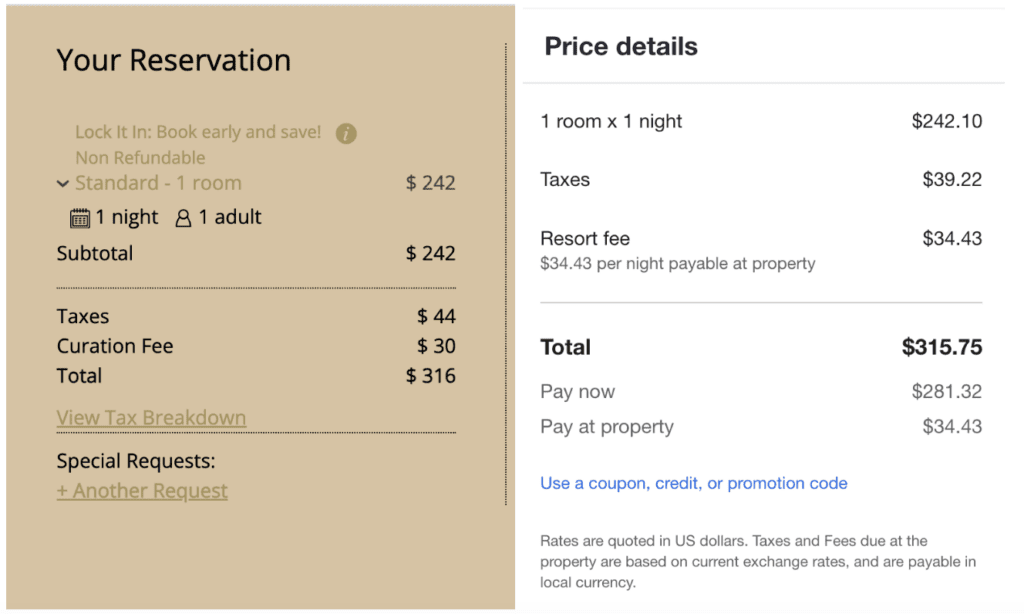Skift Take
Some hotels will come up with fancy names to hide the fact that they are charging guests an unpopular mandatory fee.
Made Hotel in New York City has caught attention for giving its resort fee an unusual name — “curation fee.”
Guests must pay an extra $30 per night for amenities — regardless of whether they use them — like coffee, Wi-Fi, and a glass of house wine (available from 5 pm to 6 pm). They also get gym access and can borrow a bike.
Made Hotel didn’t respond to Skift’s requests for comment but a front desk employee explained that the charge was for the hotel’s “curative experience.”
“Most people call it a resort fee, but curation, I confess, I have not heard that before,” said Vijay Dandapani, CEO and president of the Hotel Association of New York City. “It’s a neat word I might add.”
New Yorker staff writer Kyle Chayka noted Made Hotel’s curation fee on social media last week.
The Biden Administration has targeted so-called “junk fees,” focusing on two key factors: One is whether fees are mandatory — meaning guests have to pay regardless of whether they use the services. A second is disclosure: Are the fees clearly disclosed early in the booking process?
Dandapani said the term “junk fees” is wrongly applied to hotels. “The very name sort of conjures up the idea that you don’t get anything for it,” he said. “In most cases, it’s a fair amount of value that you get.”
He said $30 for such amenities isn’t out of the ordinary and hotels need to do what they can to stay afloat financially in New York’s expensive business environment.
Searching through the hotel’s over 760 reviews on Google, four guests mentioned the curation fee in negative reviews.
“You’re assessed a $30 “curation fee” EVERY DAY of your stay, like you’re being penalized for giving them your business,” reads one post.
Burying the Curation Fee
When shopping on an online travel agency or the hotel’s website, a guest wouldn’t see Made Hotel’s curation fee included in the price until the end of the booking process. A customer can click a link to see a disclosure that the rate also requires paying “room rate taxes and fees.”
The break-out of the curation fee is only shown right before paying. The bill, however, doesn’t break down which amenities the fee pays for.
If the guest buys the room on a third-party site, they must pay the resort fee at the front desk. The prices shown on the third-party site don’t include the mandatory fee, making the room seem more competitively priced than other properties that don’t charge such a fee.


Some guests aren’t a fan of such practices. “Be aware of additional charges — a $30 per night ‘curation’ fee was added to our invoice for things you would otherwise expect to be included (e.g access to the bar, Wi-Fi) or things that are difficult to make use of (e.g a free glass of wine if you’re in the hotel between 4 pm and 5 pm),” wrote another user.
Over the past few months, federal officials have promised to take action on such practices. The Federal Trade Commission is proposing new rules that require the travel industry to display them upfront in the booking process.
Have a confidential tip for Skift? Get in touch
Tags: hotels, junk fees, new york city, resort fees

